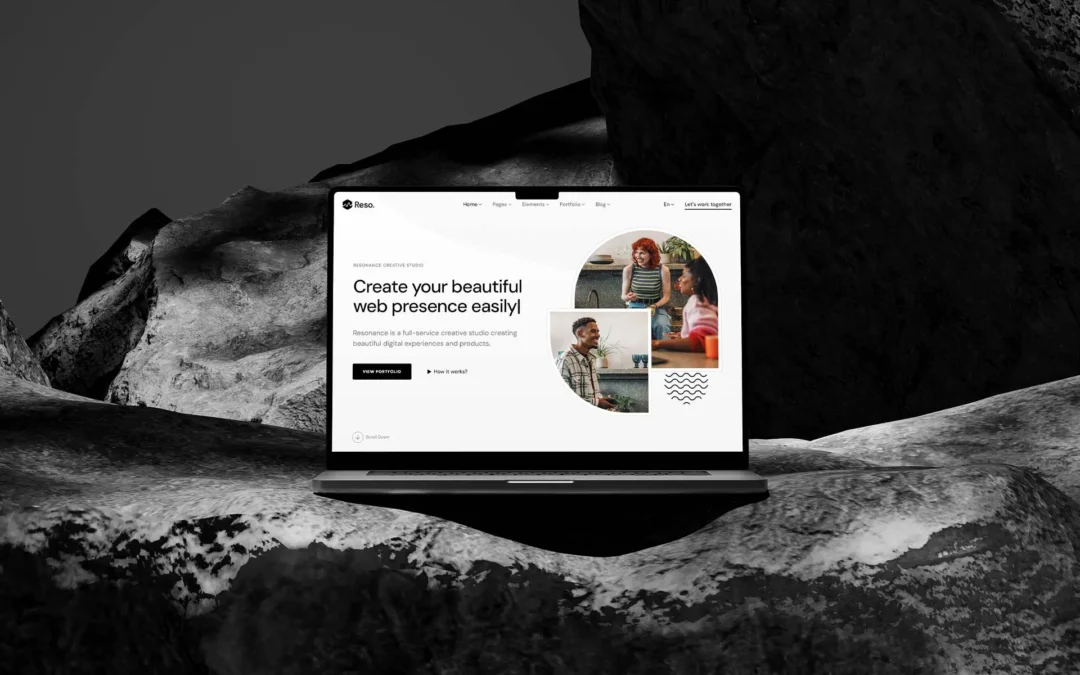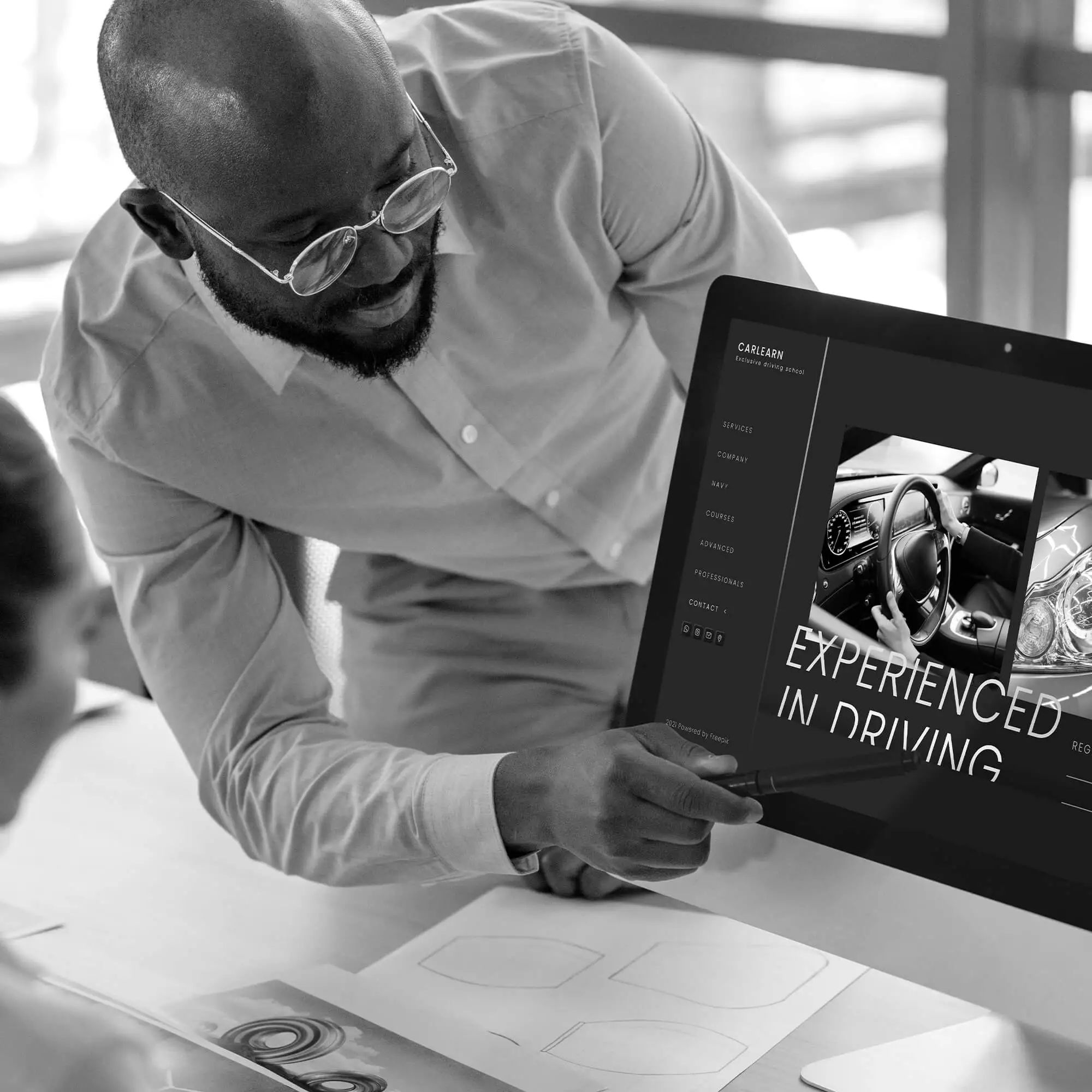Starting out your career in any industry can be a daunting experience—and it will inevitably have its ups and downs. It’s easy to get distracted and lose focus on why you do what you do, thus, making it challenging to find out what you even want to achieve in the first place.
But while there might not be one big secret to finding success, there are some things you can do that can help you along the way.
Finding out what helps you grow as a professional designer will ultimately be something that you need to determine for yourself and take control of. With that said, it’s important to consider what experienced designers have done over the last 10, 20, and 30 years of their careers to get to where they are now.
To help you on your epic design career path, we gathering 10 top tips that seasoned designers from all walks of life swear by. Read on, then apply them to your journey to move your design career in the right direction.
1. Thinking Outside the Box
As Taylor Carney, senior designer at King Strategic Communications, points out, the design industry is enormous, and there is no shortage of ways in which you can display your talent.
“I want to be able to try it all, and I never want to hold myself back just because I don’t know how to do something. So definitely think outside of the box and try new things, because you don’t have just to be stuck in one area,” says Carney.
While your specialty might be print design, there’s nothing stopping you from working in digital, web, video, photography or branding. What’s better? Having experience in more mediums ups your understanding of all design, and thus, increases your value.
2. Stay Loyal to Your Design Aesthetic Within Your Career
In any project, you need to be able to adapt to what the company, brand, or client’s vision and brand aesthetic are. However, it is important to create work that fits within your wheelhouse.
“Stay true to your style,” says Dempsey Murphy, graphic designer at iHeartMedia. “This was something I struggled with throughout college because I was constantly adjusting my design style to what I thought my professors would grade highest or what my peers would react to most positively. Finding your own style and sticking to it is so important for your work and your brand. Stay true to your style and everything will fall into place.”
Now, this isn’t saying you should scrap the boundaries your design project was given. (In fact, definitely don’t do that.) Instead, search for projects that speak to you and complement your skillset. Your clients AND portfolio will thank you.

3. Always Stay Positive About Your Design Career — No Matter What
This is probably an excellent tip for your entire life, but as FCB Health Art Director Maureen Healy suggests, it’s particularly important when you’re a designer.
“In this fast-paced industry, you have to have a positive mindset going into it. You aren’t always going to be working on the most interesting or “sexy” projects—and that’s okay,” said Healy.
You’re going faces challenges and battles every day, and while it might seem difficult always to approach things with a positive mindset, it will benefit you, in the long run, to do so.
4. Surround Yourself with Experienced Colleagues to Grow Your Design Career
In many ways, this is an overarching point of view that many designers have when discussing the topic of growth and learning. There is no better way to learn more and grow faster than to speak with the people who have already been there and done it.
“Surround yourself with people who are more experienced, and you’ll learn faster,” suggests Tom Sears, design lead at Squarespace. “Also, the design industry is a very small world, so be friendly too. Work hard and get to know the people you’re working with because everyone can teach you something.”
5. Always Keep an Eye Out for New Design Career Opportunities
It’s easy when you first start your design career to think that your first job is the best job in the world and that you’re going to be here for years to come. But that isn’t always the case.
Maybe you aren’t quite right for the role, or perhaps the company doesn’t have the same aspirations as you do, but there may come a time when you realize a job is not working out. However, that’s not necessarily a bad thing according to Rebecca Dierolf, the graphic designer at Razorfish Health.
“It’s okay if the first thing doesn’t work out—it doesn’t mean nothing will, and it took me a really long time to figure that out,” says Dierolf.
Dierolf was devastated when she found out her first role with a company wasn’t going to work out as planned. However, she then went on to find a much more suitable position with an agency that she loves.
6. Give Every Design Project Everything You’ve Got
This might sound a little cliched, but the premise for giving every project all you’ve got is certainly not unwarranted. Sarai Pegram, the front-end developer, and designer at Macmillan Publishing, suggests that you should:
“Treat every client like their project is the one that will make your career. No matter how small the job, put everything you’ve got into it and don’t ever let the client feel like they’re less important than your other clients.”
Remember, word of mouth is often the best marketing you’ve got, and one bad review or tainted impression from a client could hurt your chances of landing bigger projects down the road. With Pegram’s approach, you’ll make each client feel like their project is important to you—something that will take you a long way.
7. Train Your Brain to Find Design Career Inspiration Everywhere
Keep your mind sharp by looking for strong designs everywhere. Our technicolor world is filled to the brim with design, from architecture to art to interior decorating. Looking at everything with a discerning eye will finesse your ability to cultivate aesthetically pleasing designs for your clients.
“Train your visual eye whenever you can,” suggests Ki Yan Ip, UI designer at Sotheby’s. “Analyze what you’re looking at, and find out what works about it and what doesn’t; what draws you to it and what doesn’t; learn what you’re looking at both objectively and subjectively. You should learn and pick up on what’s going on whenever you can.”
Not only will Yip’s approach help you draw inspiration from the world around you, but you’ll become well-versed at determining why designs are (or are not) successful.
8. Improve Your Design Career by Finding Work That Inspires You
Just because your favorite designer’s work is recognized as some of the best in the world doesn’t mean that you can’t emulate it—or even create something even better—according to Rich Arnold, the product designer at Instagram.
“Stefan Sagmeister or whoever you admire doesn’t have some organ you don’t have,” says Arnold. “You should be looking at the best designers in the world and know you can sit at the table with them.”
Ultimately, you’re never going to become the best in the world at your craft unless you believe you can achieve that status. By looking at work that inspires you and striving to create something of your own at a higher caliber, you’re taking a significant first step to reach your full potential as a designer.
9. Grow Your Design Career by Remembering the Big Picture
While having a strong design skill set and creative mind is necessary, it’s not the only thing you need to have a successful design career, according to Creative Director Laura LeBel.
“Being a great designer or art director isn’t just about having excellent ideas or design,” says LeBel. “It’s about being able to come up with a new idea when your work gets killed—whether internally or by a client. It’s when you can overcome those setbacks and come up with an even better idea than the original. So be patient and keep going back to the drawing board as necessary.
Take the time to invest in your other workplace skills—such as the ability to take constructive criticism, strong time management, and excellent problem-solving skills. Honing these will supplement your creative side, and make you invaluable to any employer.
10. Start Small to Grow Your Design Career Fast
As with all other careers, you can’t expect that your time as a designer is going to go entirely to plan 100 percent of the time. However, if you start by implementing just one of the above tips into your career, you might just find that things start to pick up the pace and in the right direction.






0 Comments